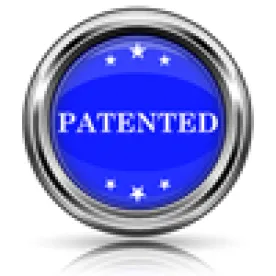Addressing the issue of sanctions for continued litigation after the parties settled all claims, the US Court of Appeals for the Federal Circuit affirmed a district court’s award of attorneys’ fees and costs, and granted further sanctions for vexatious conduct by the patent owner. Walker v. Health International Corp., Case No. 15-1676 (Fed. Cir., Jan. 6, 2017) (Reyna, J.).
Andre Walker sued multiple defendants for infringing a patent related to a device for exercising abdominal muscles. Eventually, only Health International (HSN) remained in the case. Walker and HSN agreed to mediation and reached a settlement agreement requiring HSN to pay Walker $200,000. After entering into the agreement, Walker persisted in filing motions and sought discovery. The parties continued to litigate the case through a series of motions over the next several weeks before Walker executed a general release of all claims against HSN. HSN forwarded payment the same day.
Soon after the payment was received, Walker filed a motion requesting that attorneys’ fees be denied and the case be dismissed with the district court retaining jurisdiction over the agreement. HSN filed a motion for sanctions based on Walker’s meritless filings that forced HSN to continue to litigate and waste resources on a matter that had been fully resolved. The district court dismissed all claims, awarding HSN more than $20,000 in attorneys’ fees and costs resulting from Walker’s vexatious litigation conduct after entering into the agreement. Walker appealed.
Walker first argued that the district court erred in awarding fees without “findings of bad faith.” The Federal Circuit disagreed, finding that Walker’s argument “mischaracterize[d] clear authority.” The Court pointed out that federal courts may award damages under their equitable powers when litigants have acted “in bad faith, vexatiously, wantonly, or for oppressive reasons.” The Court found ample support in the record for the district court’s conclusion of vexatiousness.
Walker next argued that the fee award was improper because he was the “prevailing party” in the infringement suit. The Federal Circuit noted that the Supreme Court of the United States rejected the so-called “catalyst theory” of attorneys’ fee recovery on which Walker relied. Because Walker continued to assert his frivolous argument and raise new misconduct accusations against opposing counsel, the Court found Walker “bent to mischaracterize clear authority and draw illogical conclusions from law and facts.” The Court was particularly troubled by Walker’s baseless assertions of misconduct against his opposing counsel and continued misrepresentation of clear, binding Supreme Court precedent even after the distortion was pointed out by opposing counsel: “[t]he continued misrepresentation standing alone is a very serious matter that could warrant sanctions.”
The Federal Circuit remarked that “attempts to mislead the court in a frivolous appeal further compound the wasted resources because the court and opposition are forced to devote extra resources to sorting through half-truths and misused legal authority in an appeal that never should have been filed in the first place.” The Court granted HSN’s motion for sanctions and determined that Walker and his lawyer were jointly liable for an award of more than $51,000, finding the “attorney who wrote and signed the briefs to be equally responsible.”




 />i
/>i
